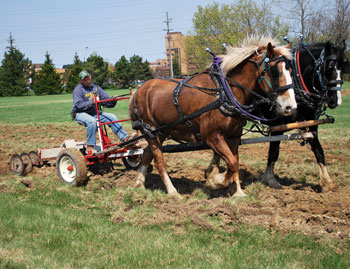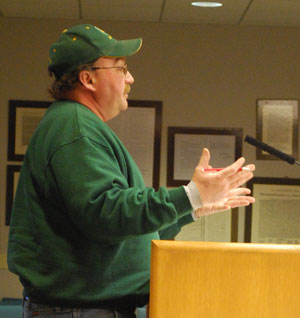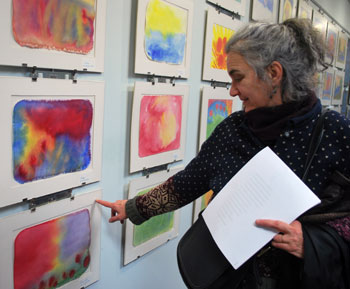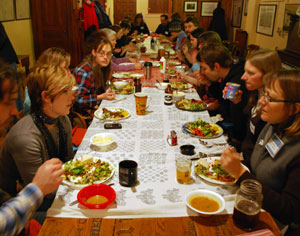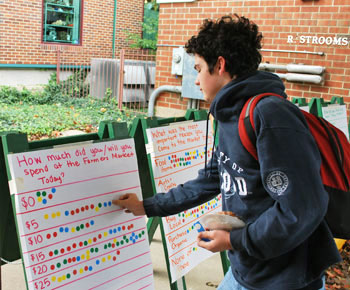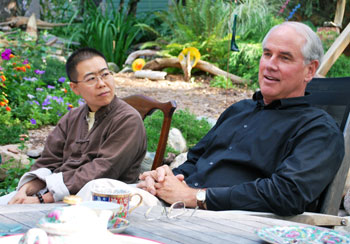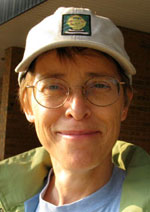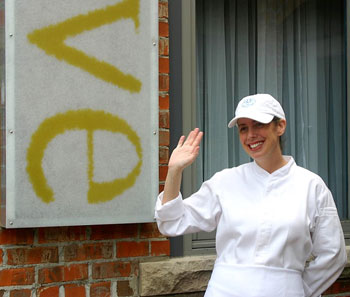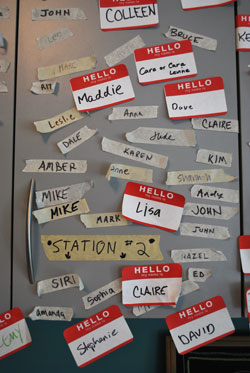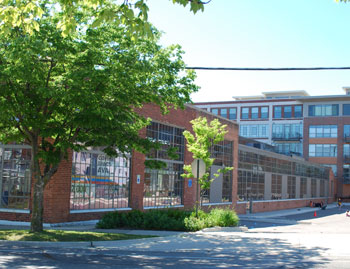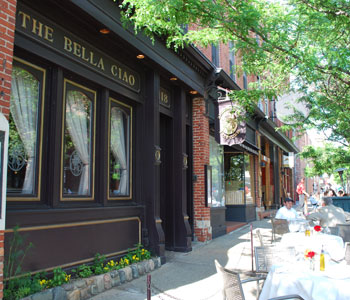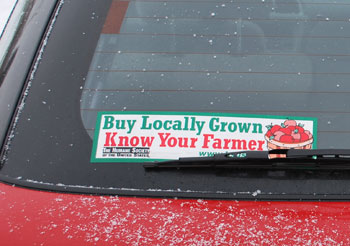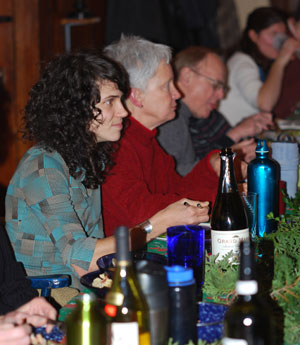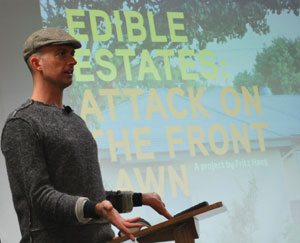Time to Expand Greenbelt Boundary?
Ann Arbor greenbelt advisory commission meeting (Nov. 10, 2010): At this month’s meeting, commissioners unanimously approved forming a subcommittee to explore possible changes to the existing boundary of the greenbelt district. Led by GAC vice chair Dan Ezekiel, the group will look for ways to protect properties that might be appropriate for the greenbelt, but that lie just outside of the current district. A similar effort in 2007 resulted in bumping out the boundary by a mile.
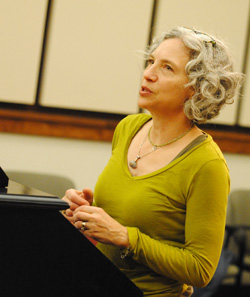
Lisa Gottlieb, organizer of the Selma Cafe, made a presentation with her husband, Jeff McCabe, at the Nov. 10 meeting of the Ann Arbor greenbelt advisory commission. (Photos by the writer.)
Noting that this was the second time they’d looked at the issue, GAC chair Jennifer S. Hall suggested exploring other ways that the greenbelt program might achieve the same result, but that wouldn’t involve regularly moving the program’s fixed boundary.
Another theme of the meeting was local food. Two local food advocates – Lisa Gottlieb and Jeff McCabe – gave a presentation about their work raising money to fund construction of hoop houses at local farms. Gottlieb and McCabe host the weekly Selma Cafe, a breakfast gathering every Friday morning at their home that regularly draws more than 120 people. Commissioner Dan Ezekiel praised their work, and GAC chair Jennifer S. Hall expressed the hope that they could find ways to work together in the future.
Also during Wednesday’s meeting, commissioners voted to recommend an agreement with Webster Township, which is offering to contribute $50,000 to the purchase of development rights for the 146-acre Whitney farm. The city council has already agreed to pay $707,122 toward that purchase.
Greenbelt program manager Ginny Trocchio reported that the city has closed on the 51-acre Gould property, adjacent to the recently protected 286-acre Braun farm – both farms are located in Ann Arbor Township. The Braun acquisition bumped the greenbelt program over the 2,000-acre mark, she said – about 2,200 acres are now part of the greenbelt. The Brauns have agreed to open their property for a celebration in the coming months.
In other action, GAC voted unanimously to set public commentary rules in alignment with other city boards and commissions. And Hall noted that two vacancies will be opening up next year on GAC – she encouraged local residents who might be interested in serving on the commission to attend some of their meetings, or talk to their city councilmember about their interest.
The commission also got an update from city treasurer Matt Horning, who was responding to questions that commissioners had raised regarding a drop in investment income on the latest year-end financial statement. [Full Story]





